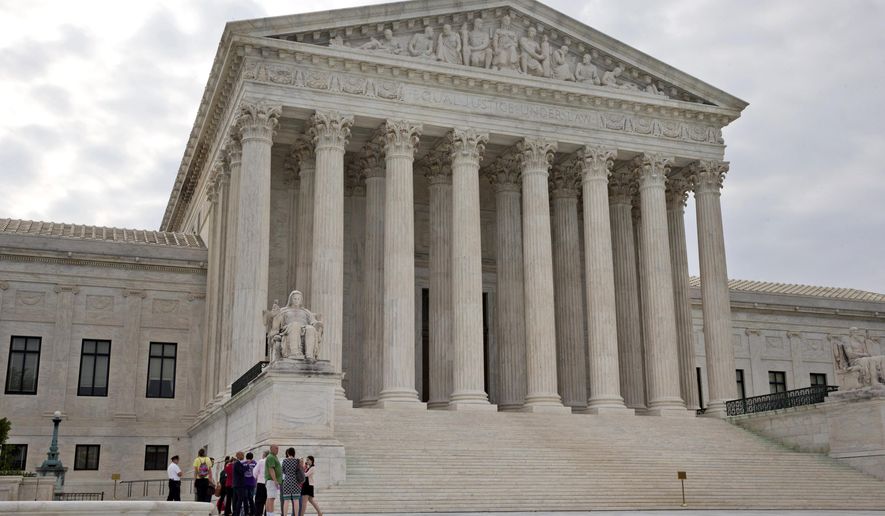The U.S. Court of Appeals for the District of Columbia Circuit on Monday issued a stay pending appeal that will again allow the city to enforce a key provision of its restrictive concealed carry laws — the requirement that gun owners demonstrate a “good reason” to obtain a permit.
A federal judge previously struck down the “good reason” requirement, saying the licensing scheme deprives citizens of their Second Amendment rights. But Monday’s ruling means the city will be allowed to continue the practice while the case is argued in appellate court.
“This means that D.C. officials will be able to continue protecting the public and enforcing our gun laws while we pursue that appeal,” D.C. Attorney General Karl Racine said in a statement issued Monday.
The ruling, made by a three-judge panel, is a setback to gun rights advocates who challenged the city’s “may issue” concealed carry permitting scheme.
In May, U.S. District Judge Frederick J. Scullin Jr. put on hold the District’s requirement that gun owners demonstrate a “good reason” in order to receive a concealed carry permit. His ruling was overturned temporarily by the appeals court on June 12, and Monday’s ruling keeps in place the earlier appellate court decision.
Monday’s ruling was handed down by a panel made up of Judges Karen LeCraft Henderson, appointed by President George H.W. Bush; David S. Tatel, appointed by President Bill Clinton; and Janice Rogers Brown, appointed by President George W. Bush.
City lawmakers had drafted the concealed carry laws last year, which required D.C. residents and nonresidents to show proof that they need to carry a weapon for self-defense, in response to a previous ruling by Judge Scullin that struck down the city’s total ban on carrying handguns in public.
The laws gave D.C. Police Chief Cathy L. Lanier authority to decide who could qualify for a concealed carry permit.
After being denied concealed carry permits by Chief Lanier this year, D.C. residents Brian Wrenn and Joshua Akery, and Tyler Whidby, a Florida resident who maintains a residence in Virginia, filed suit.
All three men applied for permits but were unable to demonstrate “a special need for self-protection distinguishable from the general community” or to provide evidence showing that they have been subject to “specific threats or previous attacks,” according to the lawsuit.
It’s unclear how many concealed carry licenses the city issued during the few weeks that the police department was legally obligated to issue permits without requiring applicants to demonstrate a “good reason.”
Metropolitan Police Department spokeswoman Gwendolyn Crump was unable Monday to provide data on how many permits were issued during that time, but said MPD does “not intend to revoke any licenses that have been issued since the initial Wrenn preliminary injunction.”
Shortly after Judge Scullin’s May 18 ruling, the three plaintiffs in the case got calls from MPD advising them to come to the department’s Firearms Registration Section for approval of their concealed carry permits, according to Alan Gottlieb, vice president of the Second Amendment Foundation, which backed the lawsuit.
MPD appeared to have limited the issuance of additional concealed carry permits during that time by telling others with pending applications that the department was taking an additional 90 days to review the ruling and their applications.
Hearings set before Judge Scullin in the case for July 7 have been canceled. A hearing schedule before the appellate court has not been set.
• Andrea Noble can be reached at anoble@washingtontimes.com.




Please read our comment policy before commenting.